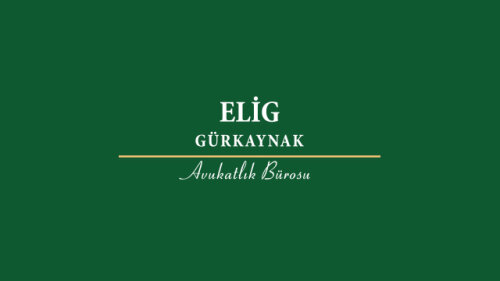Best Communications & Media Law Lawyers in Besiktas
Share your needs with us, get contacted by law firms.
Free. Takes 2 min.
List of the best lawyers in Besiktas, Turkey
About Communications & Media Law in Besiktas, Turkey
Communications & Media Law in Besiktas, Turkey, encompasses a broad range of legal issues related to the dissemination of information and communication through various media channels. This includes traditional media such as television, radio, and newspapers, as well as digital and online platforms. This field of law is designed to oversee the conduct of media organizations, protect intellectual property rights, ensure compliance with advertising regulations, and maintain standards for media professionals. Given the vibrant media landscape in Turkey, understanding the complexities of media law is crucial for professionals and organizations operating in this area.
Why You May Need a Lawyer
There are several situations in which individuals or organizations may require legal assistance in the area of Communications & Media Law:
- Defamation and libel claims: If you are involved in a dispute concerning defamation in the media, a lawyer can help navigate the legal intricacies.
- Intellectual property rights: Legal experts are essential in protecting and managing copyrights, trademarks, or patents related to media content.
- Advertising compliance: Ensuring that marketing and advertising practices are in compliance with local regulations is crucial for businesses.
- Broadcasting licenses and regulation: If you operate a media company, a lawyer can assist with navigating Turkey's regulatory framework and obtaining necessary licenses.
- Privacy and data protection: With stricter digital regulations, legal guidance is necessary to comply with data protection laws.
Local Laws Overview
The legal framework governing communications and media in Turkey is influenced by both local and international laws. Key aspects include:
- The Constitution of the Republic of Turkey: It guarantees freedom of expression, press freedom, and the right to information, with certain restrictions.
- The Press Law: This regulates printed publications and outlines regulations related to journalism and press operations.
- The Radio and Television Supreme Council (RTÜK): The regulatory authority oversees broadcasting licenses and enforces compliance with broadcasting laws.
- Intellectual Property Laws: These laws protect copyrights, trademarks, and other intellectual properties within the media sector.
- Consumer Protection Law: This affects how media companies can advertise and market their products.
Frequently Asked Questions
What are the main legal challenges faced by media organizations in Besiktas?
Common challenges include ensuring compliance with broadcasting regulations, managing intellectual property rights, handling defamation claims, and navigating the complexities of advertising law.
How does defamation law work in Turkey?
Defamation law in Turkey involves both civil and criminal aspects, requiring proof that a false statement was made that damaged someone's reputation. Legal assistance is crucial for navigating these claims.
What should I do if my content is used without permission?
If your content is used without permission, consult an attorney specializing in intellectual property law to enforce your rights and potentially seek damages for unauthorized use.
How can I protect my privacy online?
To protect your privacy online, comply with data protection laws, and consider implementing strong data security measures. Legal consultation can help ensure adherence to these regulations.
Is advertising regulated differently in digital media compared to traditional media?
While basic advertising regulations are consistent across media types, digital platforms often have additional considerations, especially concerning data privacy and targeted advertising.
How can a media company obtain a broadcasting license in Turkey?
Media companies must apply for a license through RTÜK, meeting specific criteria and compliance requirements outlined in Turkish broadcasting regulations.
Are there restrictions on freedom of the press in Turkey?
While the Turkish constitution guarantees free press, there are restrictions based on national security, public order, and moral values that media entities must navigate carefully.
What are the consequences of violating media regulations?
Consequences include fines, suspension of licenses, or legal action. It’s crucial for media companies to adhere to regulations to avoid these repercussions.
How can legal advisors help with international media regulations?
Legal advisors with expertise in international law can provide guidance on cross-border media operations, ensuring compliance with both Turkish and foreign laws.
What role does RTÜK play in regulating media in Turkey?
RTÜK monitors and regulates radio and television broadcasts, issues licenses, and ensures compliance with broadcasting standards in Turkey.
Additional Resources
For additional support, consider the following resources:
- Radio and Television Supreme Council (RTÜK): The primary regulatory authority for broadcasting in Turkey.
- Turkish Bar Association: Provides information and resources for finding legal assistance in media law.
- Ministry of Justice: Offers broader legal resources and guidance pertinent to communications and media law.
- Turkish Copyright Institute: Deals with all matters related to copyright protection and intellectual properties.
Next Steps
If you need legal assistance in Communications & Media Law, consider taking the following steps:
- Identify your specific legal needs: Clearly define what legal issues you are facing to guide your search for the appropriate legal expert.
- Consult with qualified professionals: Seek legal professionals who specialize in Communications & Media Law in Turkey to gain informed advice and guidance.
- Review and prepare necessary documentation: Gather any relevant documents, contracts, or communications that pertain to your legal issues.
- Stay informed: Keep up with updates in media laws and regulations and consider attending workshops or seminars for deeper insights.
- Utilize online legal platforms: Consider using legal platforms that connect individuals with qualified lawyers in your area of need.
Lawzana helps you find the best lawyers and law firms in Besiktas through a curated and pre-screened list of qualified legal professionals. Our platform offers rankings and detailed profiles of attorneys and law firms, allowing you to compare based on practice areas, including Communications & Media Law, experience, and client feedback.
Each profile includes a description of the firm's areas of practice, client reviews, team members and partners, year of establishment, spoken languages, office locations, contact information, social media presence, and any published articles or resources. Most firms on our platform speak English and are experienced in both local and international legal matters.
Get a quote from top-rated law firms in Besiktas, Turkey — quickly, securely, and without unnecessary hassle.
Disclaimer:
The information provided on this page is for general informational purposes only and does not constitute legal advice. While we strive to ensure the accuracy and relevance of the content, legal information may change over time, and interpretations of the law can vary. You should always consult with a qualified legal professional for advice specific to your situation.
We disclaim all liability for actions taken or not taken based on the content of this page. If you believe any information is incorrect or outdated, please contact us, and we will review and update it where appropriate.
















